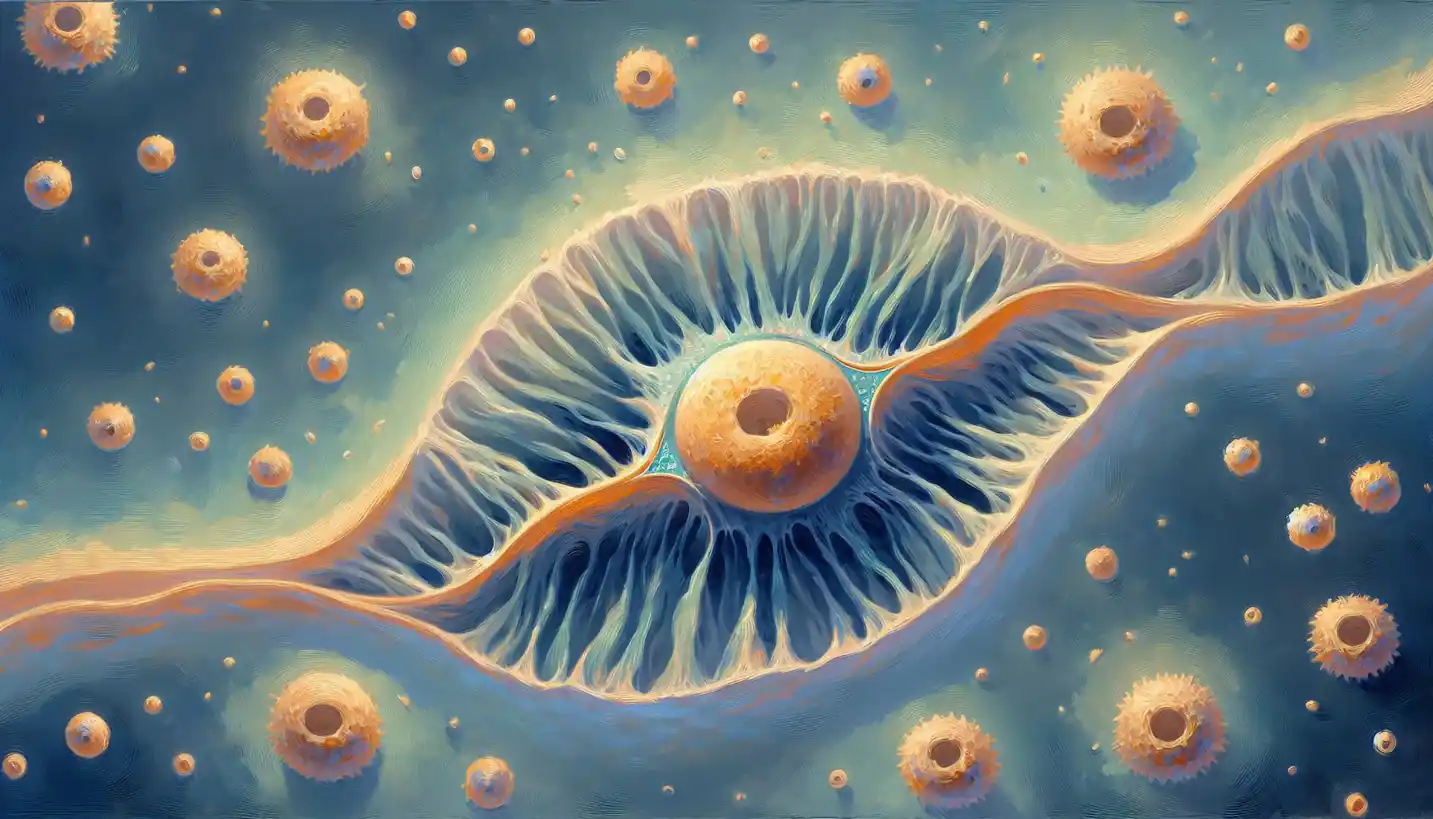· Biology · 3 min read
Immunoglobulins: The Body's Mighty Defenders
Immunoglobulins are nature's antibodies, defending the body with precision and force. Discover how these powerful molecules neutralize pathogens and shield us from harm.

You might not think about them often, but deep within your body is a powerful army tirelessly working to keep you healthy. This army is composed of tiny proteins called immunoglobulins, also known as antibodies. But what exactly are these complex molecules, and why are they so crucial for our immune system?
Understanding Immunoglobulins
Immunoglobulins are like the body’s natural security personnel. These special proteins circulate in the blood, searching for invaders like bacteria, viruses, and toxins. When they find something suspicious, they latch on and call for backup to take care of the problem.
How Immunoglobulins Work
Picture a lock and key. Immunoglobulins are the keys specifically designed to fit into the locks on the surfaces of invaders, known as antigens. There are billions of possible combinations, making it possible for these antibodies to recognize almost any potential threat. Once they bind to an antigen, it’s a signal for other parts of the immune system to come and destroy the invader.
Types of Immunoglobulins
Even though they all share a common goal, not all immunoglobulins are the same. There are five main types, each with a distinct role:
IgG: This is the most common type and provides the majority of antibody-based immunity. It’s small enough to cross the placenta, giving newborns some immunity from their mothers.
IgA: Found in areas exposed to the environment, like the gut and respiratory tract, IgA protects body surfaces that are more vulnerable to pathogens.
IgM: The first responder in an immune attack. When an invader enters the body, IgM is one of the first antibodies produced.
IgE: Though often known for its role in allergies, IgE is crucial for fighting off parasites.
IgD: The least understood antibody, IgD plays a part in respiratory immune defense.
The Story of Vaccines and Immunoglobulins
Let’s dive into a real-world application that showcases the importance of these proteins: vaccines. When you receive a vaccine, it introduces a harmless piece of a virus or bacteria into your body. Your immune system responds by creating immunoglobulins that remember this specific invader, arming you with a defense that can swiftly respond if you encounter the pathogen in the future.
Immunoglobulins and Autoimmune Diseases
Sometimes, the immune system can get a little too enthusiastic. When immunoglobulins mistakenly target the body’s own cells, autoimmune diseases occur. This is like a security team locking out the residents in addition to unwanted guests. Conditions like rheumatoid arthritis and lupus are results of such immune system malfunctions.
Immunoglobulins in Therapy
The same properties that make immunoglobulins lifesavers in fighting infection also make them powerful tools in therapies. For individuals who have immune deficiencies, infusions of immunoglobulins can bolster their immune response. Additionally, monoclonal antibodies, which are lab-made immunoglobulins, are being used to treat cancers and chronic illnesses by targeting specific cells.
The Future of Immunoglobulins in Research
Scientists are continuously exploring the potential of these proteins. With advancements in genetic engineering and biotechnology, the potential to tailor immunoglobulins for specific diseases is expanding, offering hope for treatments of previously untreatable conditions.
Conclusion: The Unsung Heroes
Although we may not see them or think about them, immunoglobulins are always on duty, vigilantly safeguarding our health. Whether it’s through vaccines, potential therapies, or simply keeping our daily invaders at bay, these molecules play an indispensable role in maintaining our well-being. So, the next time you feel thankful for your health, remember the tiny defenders making it all possible.
By understanding immunoglobulins, their mechanisms, and their applications, we appreciate not only their role in our immune system but also their potential in transforming modern medicine. With continued research, these mighty defenders could hold the key to solving some of the most complex biological challenges of our time.


